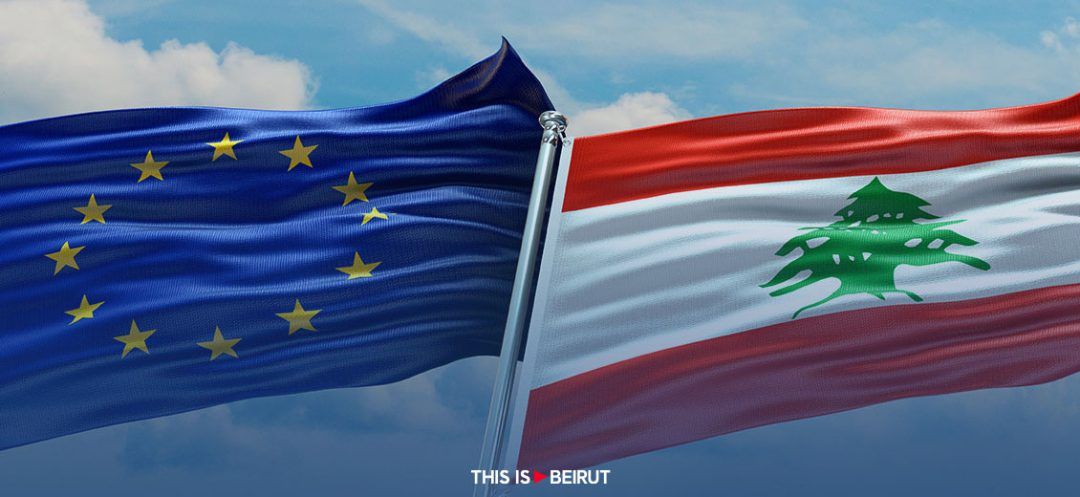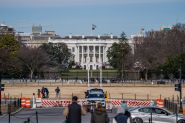
Last week’s rhetoric and outcry have waned as we approached Wednesday's parliamentary gathering aimed at debating the €1 billion financial aid package earmarked for Lebanon by the European Union. The aid is intended to bolster support for Lebanon’s most vulnerable populations and its army (LAF), while combating illegal Syrian migration to Europe.
The perspective of a potential unified parliamentary stance appears to have quelled the rhetoric of all political parties that previously opposed this donation. They had accused caretaker Prime Minister Najib Mikati of colluding with the European Union (EU) in “selling off” Lebanon by keeping Syrians within its borders.
The session, called by Parliament Speaker Nabih Berri, serves on one hand to attenuate emotions, and on the other hand, to ease pressure on Mikati since the announcement of the donation on May 2. The meeting is expected to bring together all groups opposed to Hezbollah and the Syrian regime.
MP Georges Okais, of the Lebanese Forces-led (LF) Strong Republic Bloc, confirmed to This is Beirut that the party’s representatives will attend the meeting because it is a debate session. “There will be no laws passed in the absence of a President of the Republic, but rather a debate on a matter of strategic national importance,” he explained, noting that the LF bloc “prefers to be present because it has much to say about the (erroneous) performance of this government and successive governments since 2011” regarding the massive Syrian presence.
“We'll propose solutions and recommendations to the ministerial delegation for their intervention at the forthcoming international conference in Brussels” on Syria, slated for May 27, the LF MP said, stressing that “multiple aspects will be discussed.”
This common interest to participate in elaborating a roadmap to resolve the issue of Syrian migrants motivates MPs of the Kataeb party, as well as the Coalition of Change, and other independent parliamentarians, who have abstained from legislative sessions since October 2022, to converge on parliament on Wednesday.
Unified Vision
For caretaker Prime Minister Najib Mikati, Wednesday's meeting offers a chance to develop a unified national vision to resolve the Syrian migrant issue and, particularly, to relieve his team from the pressure stemming from the European initiative.
Mikati emphasized on Monday that this aid represents a right for Lebanon, noting that the European Union had provided similar support in previous years, before they were suspended by the EU.
An LF source said, in comments made to This is Beirut, that Mikati should have provided a clarification about the EU donation earlier. “This would have preempted speculation about the donation and whether it is aimed at keeping migrants in Lebanon.”
For its part, the Renewal Bloc will call for the adoption of a clear governmental policy, focused on facilitating the return of Syrians to their home country. In an interview with This is Beirut, MP Michel Moawad, a bloc member, described the session as “essential,” as it would set the ground for a national strategy and provide a better understanding of the donation's details.
Political Decision
For its part, the Democratic Gathering Bloc, led by MP Teymour Joumblatt of the Progressive Socialist Party (PSP), will present a roadmap previously submitted to Berri and Mikati, as explained by MP Bilal Abdallah to This is Beirut. “While we acknowledge the burden posed by the Syrian presence in Lebanon, what we need is a unified stance, not mere slogans.” He stressed the necessity of establishing a clear distinction between legal workers and economic and security migrants.
Abdallah argued that it is crucial for the EU, the international community and particularly the Syrian government to assume their responsibilities. “Informal discussions with Syria are ongoing, however, they need to be official and formal. The return of migrants hinges on a political decision, which, if accepted by the Syrian government, will be easily implemented.”
FPM’s New Approach
The Strong Lebanon Bloc of the Free Patriotic Movement (FPM) appears willing to loosen its opposition towards the government, despite being at odds since 2022, after the expiry of Michel Aoun's presidential term.
During a televised interview on Friday, Nicolas Sehnaoui, an FPM MP, emphasized the need to offer parliamentary support to the government through a clear plan and concrete decisions.
The FPM bloc proposed a bill regarding the return of Syrian migrants and supports the adoption of a binding recommendation by the government on this matter, as noted by Michel Abou Najm, coordinator of the FPM's information commission. “The European donation goes beyond mere financial aid; it is intended to catalyze the process of facilitating the return of Syrian migrants to their homeland,” he said, highlighting the measures being implemented by the General Security against illegal migrants as a prime example.
The Wednesday session, to be broadcast live on TV, poses a challenge for parliamentary blocs to reach a viable agreement which, if materialized, will exert substantial pressure on both the government and the international community to engage in a process to return Syrian migrants to their homeland.
Read more




Comments